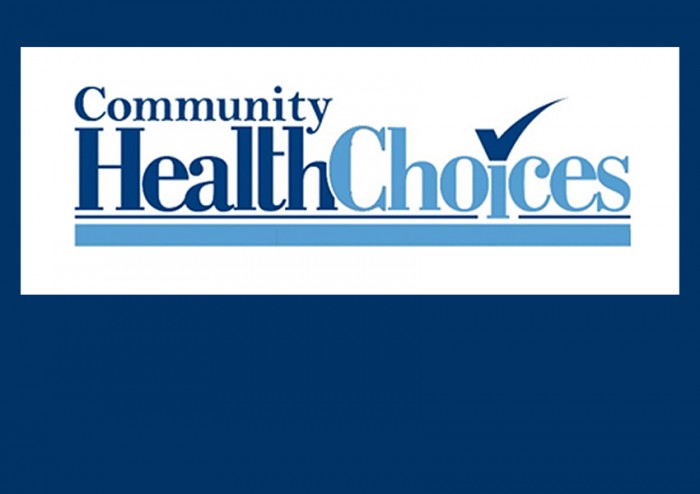Emergency Preparedness – A Timely Topic for Everyone
September is Emergency Preparedness Month. While there frequently seems to be a day, week, or month dedicated to recognizing or learning about various topics, this particular topic became a pertinent event this week. The newly renovated central office of a LEAP (Life Enrichment Advancing People), a nonprofit agency in Maine, was leveled in an explosion on Monday. LEAP provides community services to individuals with intellectual disabilities. The explosion occurred on Monday morning shortly after the LEAP Maintenance Director noticed a strong smell of gas in the basement of the building and alerted everyone to evacuate the building before it exploded. Sadly, one of the firefighters who responded to the call was killed in the explosion, and six other people were injured, including the Maintenance Director.
LEAP is a member of ANCOR, as is RCPA, and so we share a connection. There has been much conversation regarding this incident in an online ANCOR Forum. LEAP CEO Darryl Wood responded to the outpouring of support on this forum, stating:
There are heroes among us. Our maintenance director evacuated everyone and was working with the first responders when the explosion occurred. Many lives were saved by an attentive person and a team that evacuated as we practiced. Don’t take those emergency plans for granted folks.
Inspired by Darryl’s message, ANCOR is offering two webinar recordings about emergency preparedness free of charge to their members. Offering these webinars is only a small part — but hopefully a meaningful part — of how ANCOR works to support our friends at LEAP and, more broadly, ANCOR members who experience all manner of disasters.
Both of these webinars, which were broadcast previously, offer information that remains relevant for providers seeking to understand the steps they can take to be more responsive to disasters of all kinds. To access the webinars, please use the following links:
- CMS Emergency Preparedness Requirements: Tips and Resources for ICFs (originally broadcast March 2018)
- Emergencies: Panicked or Prepared? (originally broadcast April 2016)
We hope all providers take the time to reflect on disaster preparedness by watching these recordings, as well as to review your Disaster Plans and training for all staff and people supported. Other actions that have been suggested include:
- Evaluate the location of your meeting place when evacuating. In this case, it was really far from the building, yet right on the periphery of the blast area.
- When evacuating, people should leave immediately and not stop to pick up personal items.
- People should not attempt to use their cell phones while the emergency is in process. Among other things, phones can trigger explosions.
- If you have propane at any one of your sites, you should have a propane detector.
In an upcoming issue of RCPA News, there will be additional information provided, as well as resources available to assist agencies with emergency preparedness. For any questions regarding this info or how to assist LEAP in their recovery from this disaster, contact Carol Ferenz, RCPA IDD Division Director.
CHC Third Thursday Webinar Scheduled for Sept 19
The Office of Long-Term Living (OLTL) will conduct the next Community HealthChoices (CHC) Third Thursday webinar on September 19, 2019 at 1:30 pm. During this webinar, OLTL’s Deputy Secretary, Kevin Hancock, will provide updates on the CHC program. Registration is required to participate in the webinar. Once registered, you will receive a confirmation email containing information about joining the webinar.
Reminder: All CHC related information can be found here. Comments can be submitted electronically via email. If you have any questions, please contact the OLTL Bureau of Policy Development and Communications Management at 717-857-3280.
OVR Pre-ETS Policy, Procedure, and Service Model
Phase III CHC Fall Educational Provider Sessions
In preparation for the roll-out of Phase III of Community HealthChoices (CHC), it was announced today that registration is now open for the upcoming Fall Educational Provider Sessions for the regions in Phase III. The locations for each region are included on the registration form.
The agenda for each session includes:
- Registration: 8:30 am – 9:30 am
- CHC Overview Presentation: 9:30 am – 12:00 pm
- Lunch/MCO Meet and Greet: 12:00 pm – 1:30 pm
- Breakout sessions: 1:30 pm – 3:30 pm
Leading up to the summits, emails will be sent to attendees regarding schedule, parking, and event location on each campus. If you encounter problems with registering, please notify this email with your necessary information, and they can register on your behalf.
Questions about CHC? The CHC Questions and Answers Document can be found on both the Participant and Provider sections of the CHC website.
Update to HCBS Enrollment Process
Beginning today, an update has been made to the Home and Community-Based Services (HCBS) application process completed by the Pennsylvania Independent Enrollment Broker (IEB) that will include the IEB scheduling the Intake Visit Assessment (IVA) as the first step of the enrollment process.
As a result of this update, the following changes will take place:
- Upon initial contact with the applicant, the PA IEB will schedule an in-home visit, which includes an IVA within seven days, unless otherwise requested by the applicant.
- The HCBS application will start on the day of the in-home visit, or upon receipt of a Commonwealth of Pennsylvania Application for Social Services (COMPASS) application, whichever occurs first.
- At the in-home visit, the PA IEB will:
- Review the enrollment process and give the applicant and others present at the IVA an overview of what they can expect;
- Assist the applicant with completing the HCBS application and collecting all supporting documents available at the time of the IVA;
- Answer questions and assist with HCBS information and choice counseling to make their Managed Care Organization (MCO) selection.
The goal of this change is to alleviate some challenges applicants encounter while trying to navigate the eligibility and enrollment process. Questions regarding this update should be directed to the Office of Long-Term Living (OLTL) Participant Enrollment Unit at 800-757-5042 or by email.
DHS Issues RFI Regarding Models of LTC For Individuals With Complex Needs
Clarification Regarding Fraud, Waste, and Abuse Training Requirements
RCPA’s Human Resources Committee met this week, and there was discussion regarding provider responsibilities for trainings for their employees and resources available to provide the needed training. We want to clarify that these requirements apply to providers of Medicare services, not Medicaid.
CMS offers an online resource – Medicare Learning Network (MLN) as a free resource to the public. One area covered in the MLN is Medicare Parts C and D Compliance and Fraud, Waste, and Abuse (FWA) Trainings. Prior to January 1, 2019, CMS required providers of Medicare services to utilize their training to meet this requirement. Beginning January 1, 2019, CMS no longer requires health care providers participating in Medicare Advantage and Part D plans to complete CMS issued training, in order to allow the training to be offered in a manner that is tailored to each organization’s operations and risks.
Providers of Medicaid Services (Waiver services are funded through Medicaid) are not mandated to provide FWA training to their employees. Although this is not a mandated training, providers may offer this training as a part of your compliance training for all staff.
For more information regarding these training requirements, please refer to the CMS website and the Compliance Program Frequently Asked Questions document. If you have any further questions, please contact Carol Ferenz.
DHS Announces MA Fee Schedule Revisions in OBRA Waiver
Included in the August 24, 2019 Pennsylvania Bulletin was a notice from the Department of Human Services (DHS) about a change in the fee schedule rates for Personal Assistance Services (PAS) procedure codes (W1793, W1793TT, W1792, and W1792TU), and for Residential Habilitation procedure codes W0100 and W0102 in the Medical Assistance OBRA Waiver. The changes in the fee schedule rates for these services will be effective on January 1, 2020.
The existing fee schedule rates for PAS (Agency) and PAS (CSLA), procedure codes W1793 and W1793 TT, are increased by 2%. The intent of the increase is to provide for a wage increase for direct care workers providing agency-directed personal assistance services. DHS is also increasing the PAS (Consumer) and PAS (Consumer Overtime) rates, procedure codes W1792, and W1792 TU, to maintain equity in all the PAS rates in the OBRA waiver.
In addition, the existing fee schedule rates for Residential Habilitation procedure codes W0100 and W0102 are increased to include a 3 percent vacancy factor. A vacancy factor had not previously been included in the rate methodology; however, the Department recognizes that providers may not always deliver services to participants at full capacity. Therefore, a 3 percent vacancy factor will be applied to adjust the rates to account for the days the residential provider did not provide services to the participant. The provider cannot bill for days the participant did not receive services, but rather is paid a higher rate for days the participant received services. A vacancy factor of 3 percent was applied to reflect payment to providers for an average number of vacant days.
The fee schedule rates are available in the notice. Written comments regarding these fee schedule rates will be accepted through close of business on Monday, September 23, 2019 and should be sent to the Department of Human Services, Office of Long-Term Living, Bureau of Policy Development and Communications Management, Attention: Marilyn Yocum, PO Box 8025, Harrisburg, PA 17105-8025. Comments may also be submitted to the Department via email. Comments received within 30 days will be considered in subsequent revisions to the fee schedule.
DHS Publishes Proposed Amendments to OBRA Waiver
The Department of Human Services (DHS) has released the Office of Long-Term Living’s (OLTL’s) proposed OBRA waiver amendments for public review and comment in the August 24, 2019 Pennsylvania Bulletin.
DHS proposes the following substantive changes to the OBRA waiver effective January 1, 2020:
- Revise the Residential Habilitation service definition by modifying the number of hours that are defined as a day unit from a minimum of 12 hours to 8 hours.
- To the service definitions of Job Finding, Job Coaching, Employment Skills Development, Career Assessment, and Benefits Counseling, add language that Office of Vocational Rehabilitation (OVR) services are considered not to be available if OVR has not made an eligibility determination within 120 days; and add language to address when employment services through the OBRA waiver can be provided should OVR close the order of selection, thereby creating a waiting list for OVR services.
In addition, DHS proposes to make the following technical edits:
- Update Appendix C-2.b., Abuse Registry Screening, to reflect that the Department utilizes IDEMIA as the data system to process fingerprint-based Federal Bureau of Investigation (FBI) criminal record checks as well as other minor editorial changes to the section.
The proposed amendments and a summary of all of the revisions are available for review here.
Written comments regarding these proposed waiver amendments will be accepted through close of business on Monday, September 23, 2019 and should be sent to the Department of Human Services, Office of Long-Term Living, Bureau of Policy Development and Communications Management, Attention: OBRA Waiver Amendments, PO Box 8025, Harrisburg, PA 17105-8025. Comments may also be submitted to the Department via email. Please use OBRA Waiver Amendments as the subject line.

















